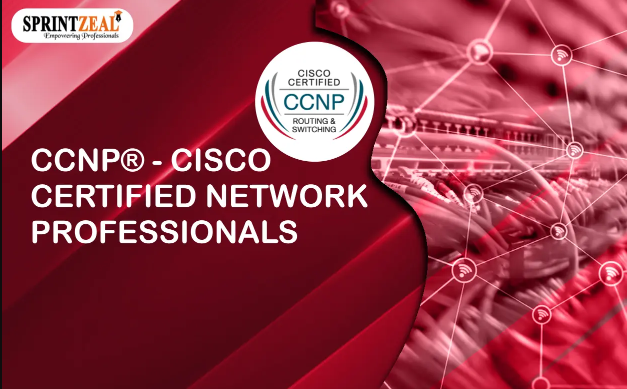In the dynamic and ever-evolving landscape of information technology, professionals are continuously seeking ways to validate their skills and advance their careers. Among the myriad of certifications available, the Cisco Certified Network Professional (CCNP) stands out as a prestigious credential for networking professionals. But with the significant investment of time, effort, and money required to achieve this certification, the question arises: Is CCNP certification worth it? This article delves into the various aspects of the CCNP certification to help you determine its value.
Understanding CCNP Certification
The CCNP certification, offered by Cisco, is designed for IT professionals who aspire to deepen their knowledge and skills in networking. It is an intermediate-level certification that falls between the Cisco Certified Network Associate (CCNA) and the Cisco Certified Internetwork Expert (CCIE). The CCNP certification covers a range of specializations, including:
- CCNP Enterprise: Focuses on enterprise networking technologies.
- CCNP Security: Centers on security infrastructure.
- CCNP Data Center: Pertains to data center solutions.
- CCNP Collaboration: Involves collaboration and unified communications.
- CCNP Service Provider: Related to service provider solutions.
Each CCNP certification requires passing multiple exams, typically one core exam and one concentration exam within the chosen specialization.
Career Advancement and Job Opportunities
One of the primary reasons IT professionals pursue the CCNP certification is the potential for career advancement and enhanced job opportunities. The certification is recognized globally and often serves as a benchmark for employers seeking qualified candidates for network-related roles. Holding a CCNP certification can open doors to various positions, such as:
- Network Engineer: Responsible for designing, implementing, and managing network infrastructure.
- Network Security Engineer: Focuses on securing networks against internal and external threats.
- Systems Engineer: Deals with the integration of network systems within an organization.
- IT Manager: Manages the IT department and oversees network-related projects.
These roles typically offer competitive salaries, with CCNP-certified professionals often commanding higher pay compared to their non-certified counterparts. According to recent data, the average salary for a CCNP-certified network engineer in the United States ranges from $80,000 to $120,000 annually, depending on experience and location.
Knowledge and Skills Development
The CCNP certification process is rigorous and comprehensive, requiring candidates to develop a deep understanding of networking concepts and technologies. This certification covers a wide array of topics, including:
- Routing and Switching: Advanced routing protocols, VLANs, and WAN technologies.
- Security: Network security principles, firewalls, VPNs, and intrusion prevention systems.
- Wireless: Wireless networking standards, design, and security.
- Data Center: Data center architecture, networking, and virtualization.
- Collaboration: VoIP, video, and other collaboration technologies.
By pursuing the CCNP certification, professionals not only gain theoretical knowledge but also practical skills through hands-on labs and simulations. This combination of knowledge and practical experience is invaluable in real-world networking environments, where complex problems require effective solutions.
Industry Recognition and Credibility
Achieving CCNP certification signals to employers and peers that you possess a high level of expertise and dedication to your profession. Cisco is a leader in networking technology, and its certifications are held in high regard within the industry. The CCNP credential is often considered a mark of excellence and can significantly enhance your professional credibility.
Continuing Education and Specialization
Cisco’s certification program encourages continuous learning and specialization. Once you earn your CCNP certification, you can further specialize in areas that align with your career goals. For instance, you can pursue additional concentration exams within your chosen track or explore other CCNP specializations. This flexibility allows you to tailor your certification journey to your interests and the demands of the job market.
Additionally, Cisco offers Continuing Education (CE) credits, which can be used to recertify your CCNP or advance to higher-level certifications like CCIE. This ensures that your skills remain current and relevant in an ever-changing technological landscape.
ROI: Return on Investment
The cost of obtaining a CCNP certification can be significant, considering exam fees, study materials, and potential training courses. As of 2024, each CCNP exam costs around $300, and candidates typically need to pass two exams. Additionally, investing in study materials, online courses, or boot camps can add to the expense.
However, the return on investment (ROI) for CCNP certification can be substantial. With the potential for higher salaries, better job opportunities, and increased professional recognition, the benefits often outweigh the initial costs. Moreover, the knowledge and skills gained during the certification process can lead to more efficient and effective job performance, further enhancing your career prospects.
Challenges and Considerations
While the benefits of CCNP certification are clear, there are challenges and considerations to keep in mind. The certification process is demanding and requires a significant time commitment. Balancing work, study, and personal life can be challenging, and candidates must be prepared for the rigorous preparation required.
Additionally, the IT industry is continuously evolving, and staying current with the latest technologies and trends is crucial. This means that CCNP-certified professionals must commit to ongoing learning and recertification to maintain the value of their credential.
Conclusion
So, is CCNP certification worth it? For many IT professionals, the answer is a resounding yes. The certification offers numerous benefits, including career advancement, enhanced job opportunities, and the development of valuable skills. It provides industry recognition and credibility, as well as opportunities for specialization and continuous learning. While the process is challenging and requires a significant investment, the potential return on investment makes it a worthwhile endeavor for those committed to advancing their careers in networking.
Ultimately, the value of CCNP certification depends on your individual career goals, interests, and circumstances. If you are passionate about networking and willing to invest the necessary time and effort, CCNP certification can be a powerful catalyst for professional growth and success.










